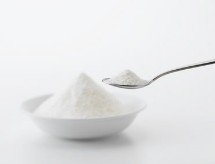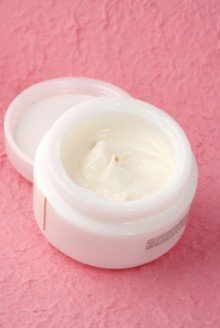How To Build Collagen – Collagen Repair and Antiaging
How to build collagen is an important question for anyone who wants to keep their skin, eyes, joints, blood vessels, and digestive system healthy. Collagen repair using quality sources of collagen is the way to go.
What's Collagen and Why is it Important?
Collagen is the main protein in your skin and joints. It is found in your eyes, spine, bones, blood vessels, and stomach, and makes up approximately 25% to 35% of your entire body protein. It is affected by the aging process, is degraded, and declines with age.

Because collagen is in so many important tissues and organs, the health of your collagen is critical to the health of your entire body.
Lets look at the processes that damage it, and most importantly, how we can promote collagen repair using available sources of collagen, antioxidants, and other essential nutrients.
How is Collagen Damaged
Collagen undergoes a process called “glycation,” in the body, in which the proteins that make up collagen bind with sugar molecules, losing their elasticity and becoming stiff. The collagen also loses some of its ability to hold water, which damages it even more.
Another damaging process that collagen undergoes is called “cross linking,” which is caused by free radicals that damage the structure of the proteins. Some cross linking is necessary to give tissues the ability to hold together, but excessive cross linking is ultimately destructive, because it destroys the elasticity of tissues.

This is why your skin becomes “leathery” and wrinkled with age, and also why it tends to sag as well. Wrinkles are places where collagen has been lost. Sagging is due to the loss of elasticity over time, in which the skin can't snap back after being stretched.
Inflammatory enzymes also attack the integrity of your collagen as well, and contribute to the loss of collagen. Since we know what these processes are, we can begin to develop a strategy for collagen repair to combat the aging process.
Since collagen is found in your eyes and blood vessels, understanding how to build collagen and protect it from damage is critically important to healthy aging and even life itself!
Sources of Collagen
Sources of collagen can be found in chicken and beef cartilage and also in collagen supplements. Since not many people make a habit of eating cartilage, a substitute would be gelatin, which contains hydrolyzed collagen.
Knox makes a product called “Nutrijoint,” which is made from chicken cartilage and does make an effective supplement for collagen. It contains high amounts of two amino acids that make up the bulk of collagen's protein matrix, glycine and proline
Look for collagen supplements containing Biocell collagen, as this is a proprietary formulation used in many top quality collagen supplements. It normally comes in capsule form.
Some supplements combine collagen with other nutrients hyaluronic acid or MSM which are known to also play a role in the health of the skin and connective tissues.
How To Build Collagen
Building and collagen repair really has two parts. One part is to consume quality sources of collagen the form of gelatin, or a Biocell collagen supplement.
Another new supplement that shows promise is Choline-stabilized orthosilicic acid. This product helps increase the elasticity and firmness of tissues containing collagen.
Research has also shown that topically applied creams do have a beneficial effect on your skin's collagen.

The other issue is to preventing damage to your collagen through glycation, cross linking, and enzymatic breakdown. This approach can help maintain a healthy collagen/elastin ratio, keeping your collagen containing tissues pliable.
Here are some strategies for how to build collagen by protecting against collagen damage and breakdown:
- Eat a low glycemic diet to help prevent glycation
- Eat plenty of beneficial fruits and vegetables to supply needed nutrients
- Use antioxidants like vitamin-c, vitamin-e, pycnogenol, green tea, ect. To protect against free radical damage
- Drink plenty of water to maintain proper hydration
- Avoid smoking, and excess alcohol intake
- Do not overdo sun exposure
- try to get 8 hours of sound restful sleep each night
These strategies for how to build collagen should be implemented into your daily life as best you can. Sources of collagen for collagen repair can be as simple as adding some gelatin powder to juice or a protein shake, or taking a few capsules per day of Biocell collagen.
This will ensure that your joints, skin, eyes, and blood vessels, will remain healthy and functional all through your years.
Return from How To Build Collagen to Antiaging Nutrition
Return from How To Build Collagen to Longevity and Antiaging Secrets
New! Comments
Care to comment? Feel free to leave your comments below!